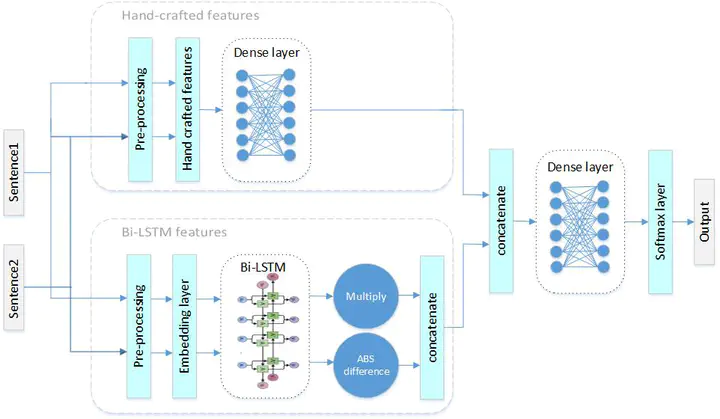Paraphrase detection using LSTM networks and handcrafted features

Abstract
Paraphrase detection is one of the fundamental tasks in the area of natural language processing. Paraphrase refers to those sentences or phrases that convey the same meaning but use different wording. It has a lot of applications such as machine translation, text summarization, QA systems, and plagiarism detection. In this research, we propose a new deep-learning based model which can generalize well despite the lack of training data for deep models. After preprocessing, our model can be divided into two separate modules. In the first one, we train a single Bi-LSTM neural network to encode the whole input by leveraging its pretrained GloVe word vectors. In the second module, three sets of handcrafted features are used to measure the similarity between each pair of sentences, some of which are introduced in this research for the first time. Our final model is formed by incorporating the handcrafted features with the output of the Bi-LSTM network. Evaluation results on MSRP and Quora datasets show that it outperforms almost all the previous works in terms of f-measure and accuracy on MSRP and achieves comparable results on Quora. On the Quora-question pair competition launched by Kaggle, our model ranked among the top 24% solutions between more than 3000 teams.